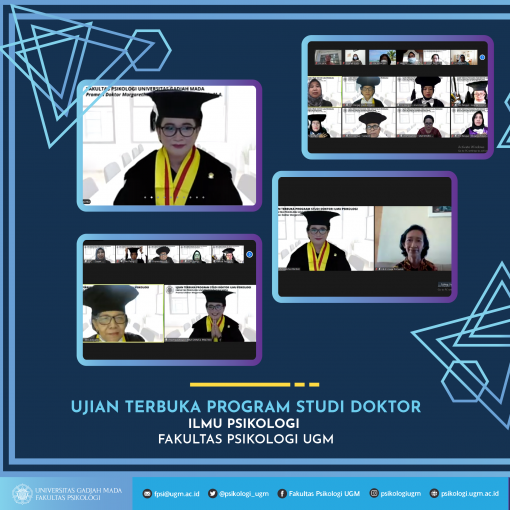
Human development is a developmental process experienced by humans throughout life. The period of human development begins in the womb until the elderly. Each developmental period experienced by humans has its own characteristics. In addition, the development period is also divided into several changes, namely physical, social-emotional, and moral.
Moral development is related to how humans understand life and interact with a society in which there are rules, standards and values that must be followed in order to be in harmony with the environment. In addition, morality is something that is closely related to everyday life, where humans interact with others requiring values, rules, and standards that will give birth to habit patterns. Morals will also guide people to understand about what is permissible, appropriate and not violating when it is done. Due to this, moral development is an interesting thing and was chosen by Margaretha Maria Shinta Pratiwi, S.Psi., M.A as the research theme for her dissertation.
“Emotion-moral is interesting because some people know moral development more in terms of cognitive or way of thinking. In addition, emotion-moral has not been touched by many research studies in Indonesia. Even if it has been done, usually emotion-moral is more related to emotion-moral that affects behavior, ”explained Margaretha.
Furthermore, Margaretha explained that emotion-moral is the center of development that can be used to anticipate events that can violate morals and generate positive social interactions. More specifically, emotion-moral is something that appears as a reaction to moral events related to the interests or welfare of others and is not limited to oneself. In short, moral-emotion is emotion that is sincere and selfless because it has nothing to do with self-interest.
This study uses adolescents as participants because according to Margaretha, adolescents are the main source for future progress. If their youth are good, they will be a positive source for the sustainability of the nation’s development in the future. In addition, according to Margaretha, a teenager can be directed to have good moral emotions provided that their parents have given an example of what good moral emotions are. If adolescents have good moral-emotions, then one of them can be seen from their ability to see a problem from various different points of view.
In terms of theoretical implications, research conducted by Margaretha contributed to Adolescent Psychosocial Emotions-Moral Predictive Factor Model for moral development theory. The emotional-moral research conducted by Margaretha has also succeeded in getting her a doctorate from the Gadjah Mada University Psychology Doctoral Study Program as well as the 5,019th doctoral graduate from the Faculty of Psychology, Gadjah Mada University. Margaretha hopes that her research can reduce negative perceptions of adolescents who are difficult to control and talk to, because teenagers can actually be directed to have good moral emotions and can become the main source of progress for a nation in the future.
